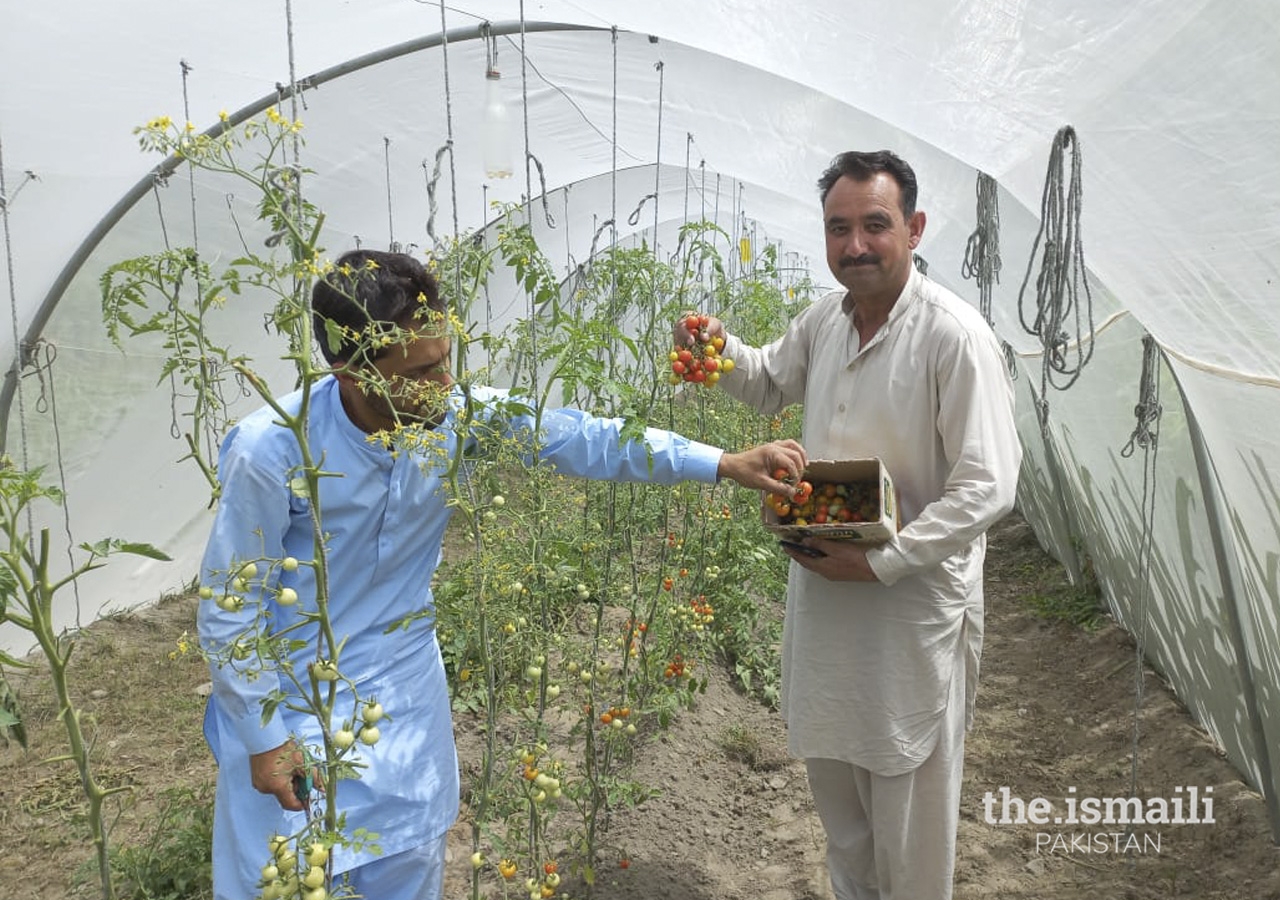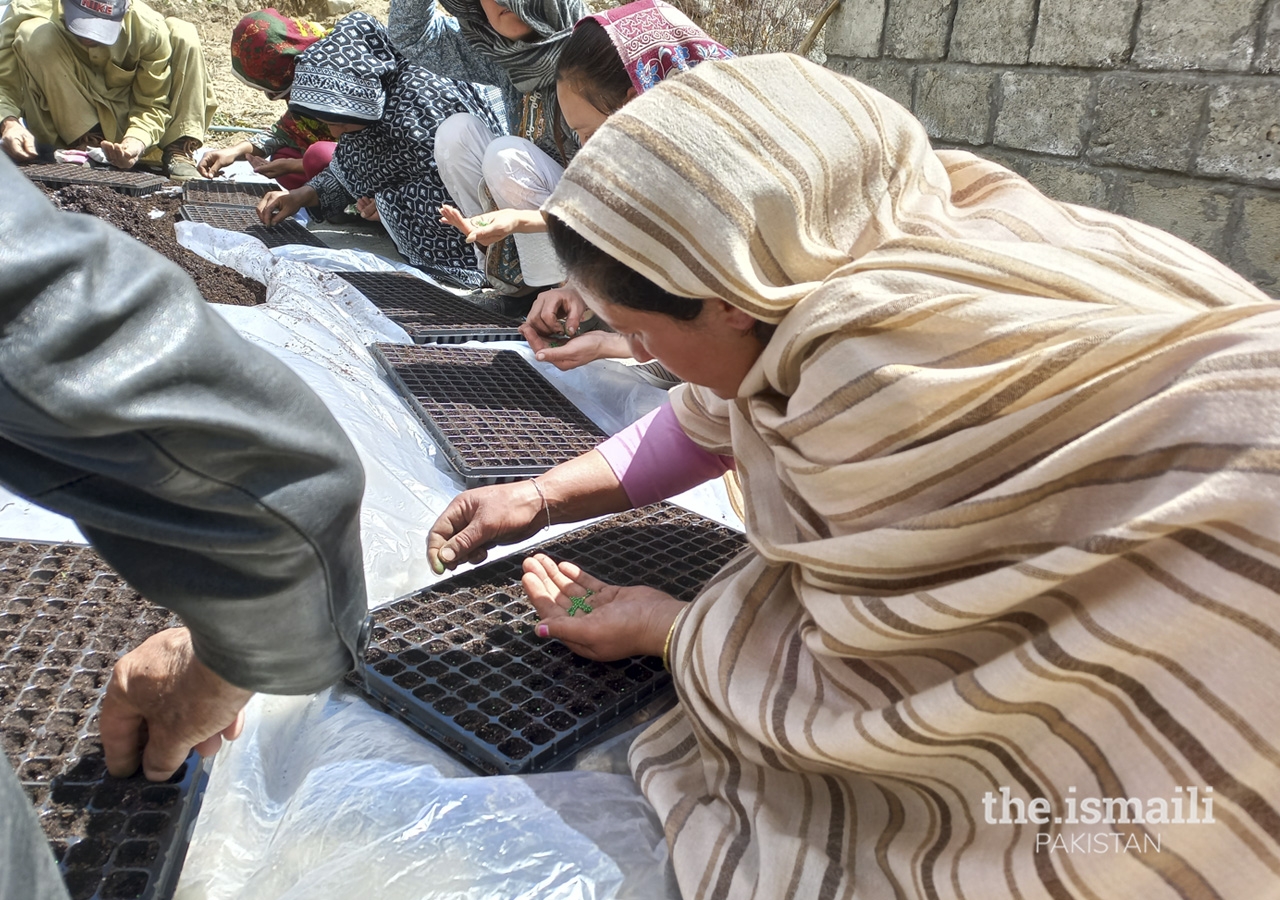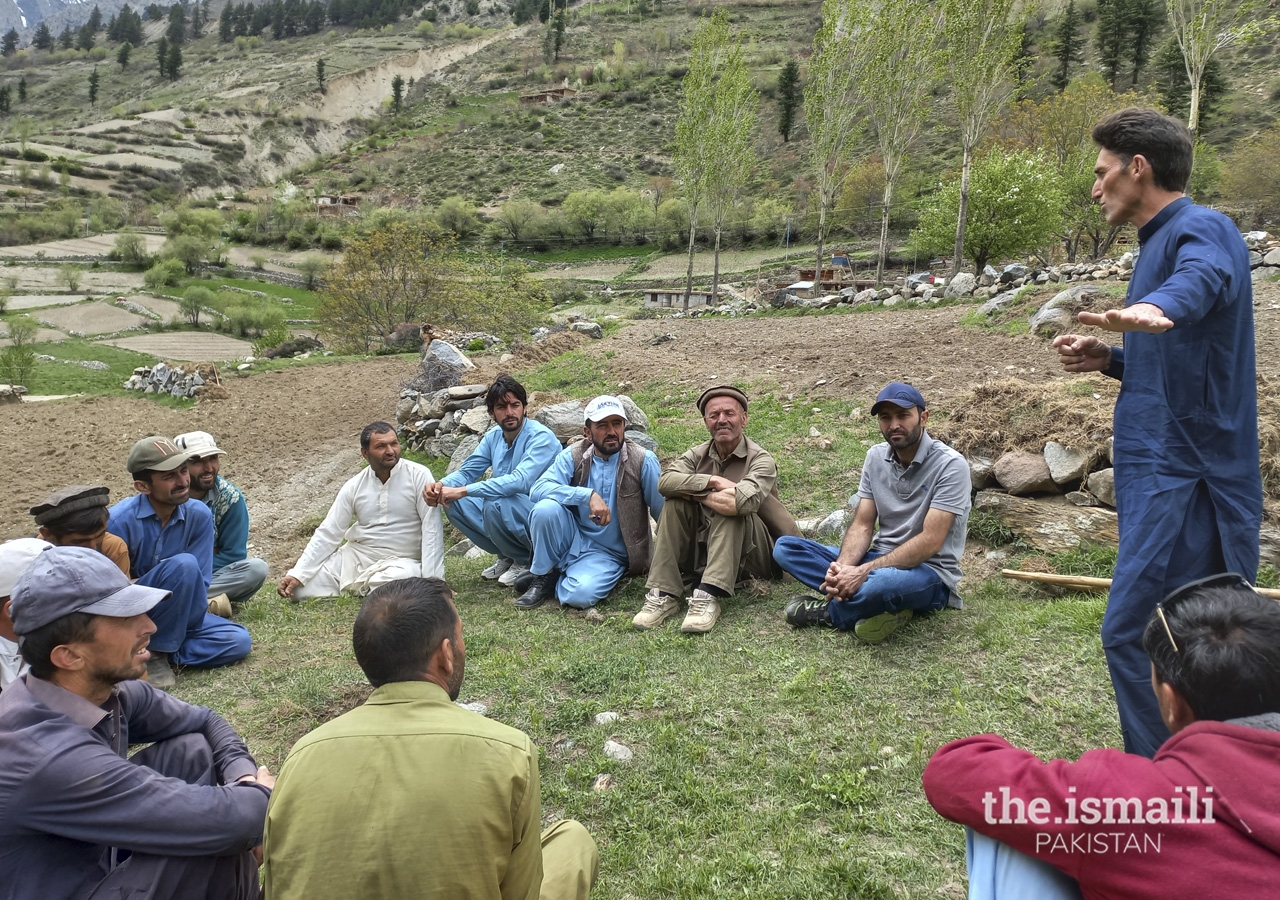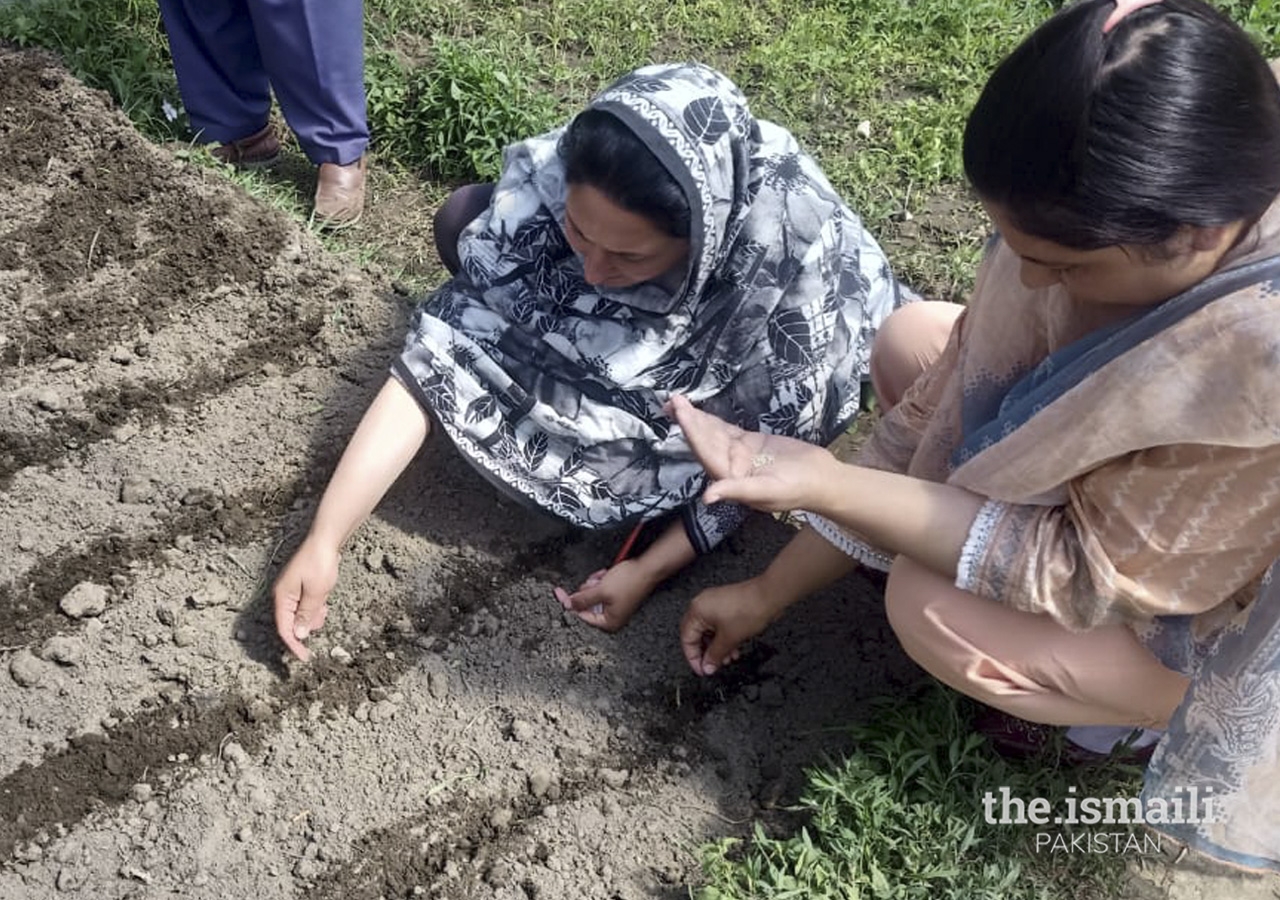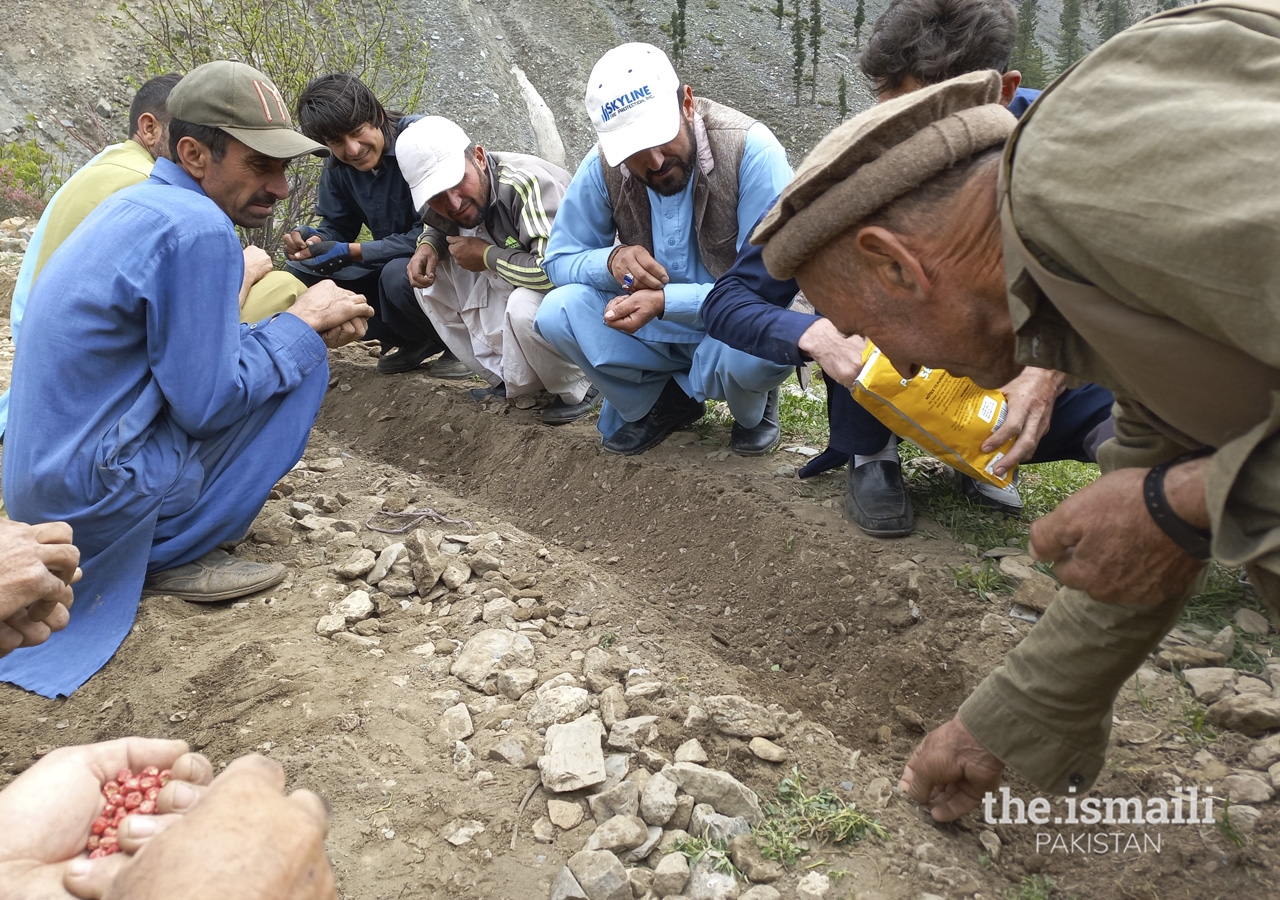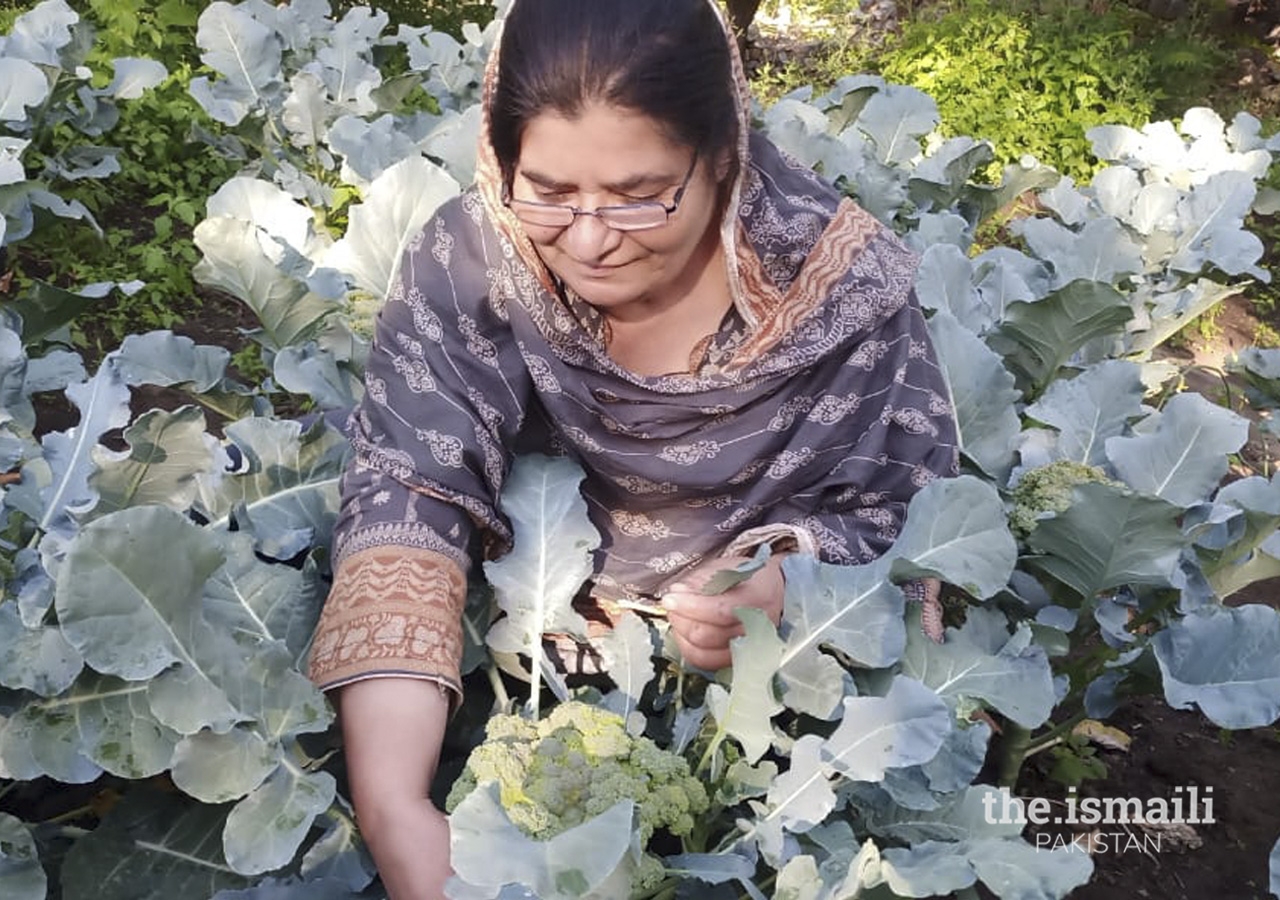By studying the best farming practices from agricultural experts in different cities, AKEPB has arranged capacity-building sessions and dialogues to deliver and pass on these practices to farmers. These sessions have focused on sowing practices, using hybrid seeds and identifying high-value and high-margin crops that can increase farmers' incomes. Through this initiative, AKEPB aims to help farmers adopt sustainable and profitable farming practices that can improve their livelihoods.
Firstly, instead of cultivating traditional crops, which have low market demand and profits, prevalent changes to farming practices made last year aimed to focus on high-value, high-yield crops and incorporate best practices. By converging to high-margin crops, agriculturalists focused on growing crops such as broccoli, peas, white onion, etc., which sell at a premium price.
This year, further modifications allowed farmers to generate more income than previous years. After learning a great deal from the previous year's experiences, farmers utilised new agricultural practices to improve their yields and profits. For example, last year many farmers experimented with seedling trays to plant their crops early in order to give them a head start on the growing season and reduce waste. This proved to be a game-changer, as it allowed farmers to extend their growing season and get their crops to market earlier.
In addition to using seed trays, farmers also focused on using hybrid seeds that were specifically designed to be disease-resistant and produce superior yields in high altitude areas. This allowed them to grow additional crops on less land, proving advantageous to help maximize profits. With the start of the new agricultural season, many farmers are excited to continue implementing best farming practices and acquiring more success.
AKEPB also informed farmers about sustainable farming practices through capacity-building sessions. By implementing practices like crop rotation and cover cropping, farmers were able to reduce their reliance on synthetic fertilizers and pesticides, which helped to improve the overall health of their soil.
Moreover, the Aga Khan Economic Planning Board (AKEPB) has also been instrumental in helping farmers to form farming alliances and partake in farming cooperatives. By organizing multiple awareness sessions across GB, AKEPB guided farmers to understand the importance of farming cooperatives and how pooling resources and expertise may help them gain access to larger markets, negotiate better prices for their products, share knowledge and best practices. Furthermore, alliances may also help cultivators mitigate risks. For example, if one farmer in the group experiences crop failure due to weather or disease, other farmers in the group can help to offset the losses by sharing their own crop knowledge.
Overall, the success of farmers last year was a testament to their willingness to adapt and attempt new methodologies. As we move into a new agricultural season, it's clear that these best farming practices will continue to be an important factor for their success.
Farmers have appreciated the support of AKEPB and other partners in providing technical assistance, training and high-quality inputs. This has allowed them to improve their skills and knowledge, adopt best practices and invest in their farms. Farmers have also noted the importance of collaboration and knowledge-sharing through farming cooperatives.
As we look forward to another year of growth and harvest, data confirms that farmers who are willing to innovate and try new pedagogies will be successful. Here's to a prosperous agricultural season!
It's that time of year again - the start of the agricultural season! As the warm, Spring sun begins to shine down on the fields, farmers all across Gilgit Baltistan and Chitral are gearing up for another season of planting, growing and harvesting.
Small-scale farming is a critical source of livelihood for rural communities. Due to limited access to information, resources and technology, many farmers struggle to improve their farming practices and achieve sustainable yields. In recent years, the Aga Khan Economic Planning Board for Pakistan has recognized this challenge and taken a proactive approach to support small-scale farmers to improve their agricultural practices and increase their farming income.

